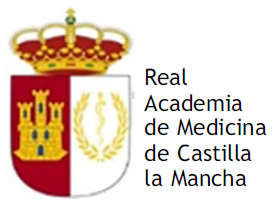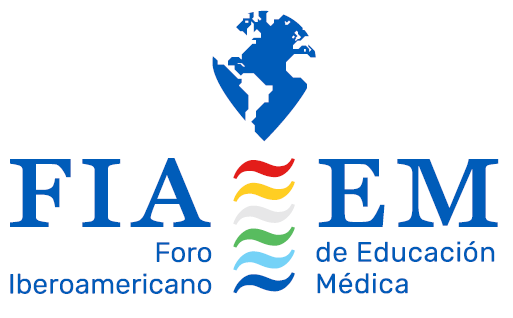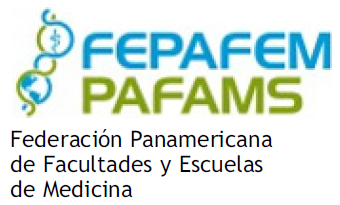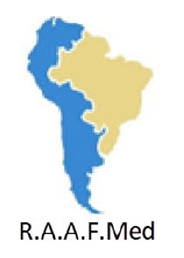Pathology is a discipline that allows students of medicine to integrate their knowledge learned in the initial years of graduation with clinical practice.
ObjectiveTo report the experience of the “Comunidade de Estudos e Desenvolvimento Técnico-Científico dos Campos Gerais (CEDTEC-CG)”.
MethodologyData were collected from extension testimonials and informational data, focusing on the importance of the project in the academic training, and the potential benefits of the activity for the local community, correlated with the scientific literature.
Results and discussionCEDTEC-CG is a project created in 2012, with the main objective of working in university extension, and is an initiative involving teachers, students and researchers in order to generate accessible scientific knowledge and promote health education. The project has several aspects of action, such as the availability of online content, high-level scientific production, and the promotion of health in the community in general, revealing an opportunity for improvement in student learning and social integration. The project tries to better integrate the undergraduate education strand, bringing the student closer to medical practice, increasing scientific production with dissemination of results, and acting directly with the community, bringing improvements in health promotion and production.
La patología es una disciplina que permite a los estudiantes de medicina integrar su conocimiento aprendido en los primeros años de graduación con la práctica clínica.
ObjetivoInformar la experiencia de la «Comunidade de Estudos e Desenvolvimento Técnico-Científico dos Campos Gerais (CEDTEC-CG)».
MetodologíaDatos recopilados de testimonios de extensionistas y datos informativos, centrados en la importancia del proyecto en la formación académica y los beneficios potenciales de la actividad para la comunidad local, correlacionados con la literatura científica.
Resultados y discusiónLa CEDTEC-CG es un proyecto creado en 2012, con el objetivo principal de trabajar en la extensión universitaria, es una iniciativa que involucra a docentes, estudiantes e investigadores para generar conocimiento científico accesible y promover la educación para la salud. El proyecto tiene varios aspectos de acción, como la disponibilidad de contenido en línea, producción científica de alto nivel y la promoción de la salud en la comunidad en general, revelando una oportunidad para mejorar el aprendizaje de los estudiantes y la integración social. El proyecto trata de integrar mejor la rama de la educación universitaria, acercando al estudiante a la práctica médica, aumentando la producción científica con la diseminación de resultados, y actuando directamente con la comunidad, trayendo mejoras en la promoción y la producción de la salud.
The pathology is a field of knowledge within the health sciences responsible for studying from the cellular changes caused by damaging processes and diseases to large systemic dysfunctions capable of providing macroscopically and directing the clinical evaluation.1 It is a discipline of imponderable importance within medical education, being the basis for the diagnostic and development reasoning of Medicine as a science, emerging as one of the main branches of scientific research. It is considered the main link between basic curricular sciences and clinical practice, requiring the student to recognize morphological changes, both at the macro and microscopic level, based on the understanding of the pathophysiological mechanisms of diseases.2
Of the major problems faced by medical courses in Brazil, curricular fragmentation and the theoretical-practical dichotomy are quite common in students’ daily lives.3 The teaching of pathology, involving theoretical classes and laboratory contact with anatomical pieces, biopsies and histological slides, can be an integrative and reductive form of such difficulties, as long as it stimulates a process of continuous search for knowledge and interdisciplinarity.
Based on the understanding of the relevance of the pathology and its subareas, the General Pathology and Pathological Anatomy, for the student's knowledge construction, a group of students associated with several professors of the Medicine Department of Ponta Grossa State University (Universidade Estadual de Ponta Grossa, UEPG, Ponta Grossa, Parana, Brazil) created the “Comunidade de Estudos e Desenvolvimento Técnico-Científico dos Campos Gerais – CEDTEC-CG” (Community of Studies and Technical-Scientific Development of the Campos Gerais), an extension project with a view to the production of scientific knowledge and health education. The project brings together students, medical researchers and teachers in an integrative way, seeking to improve the anatomopathological study of the most prevalent diseases in the Campos Gerais region and the generation of information relevant to the health of the population.
The present study has the objective to report the students’ learning experience and the achievements of the CEDTEC-CG in the academic and social spheres.
Material and methodsThe present work consists of an experience report by the participants of CEDTEC-CG, in Ponta Grossa, referring to its six years of existence. Ponta Grossa is a city in the southern region of Brazil, located in the state of Paraná, in a region known as Campos Gerais. The city has approximately 300,000 people and it is a reference in health for almost 600,000. The data were collected from reports and statements of the extension and informational data, focusing on the importance of the project in its academic training and the potential benefits of the activity to the local community. In addition, articles were found in the “Scielo” database, using the descriptors “teaching”, “pathology” and “health education” for scientific corroboration.
Results and discussionThe reciprocal relationship of the academic with the community is the basis that the university uses to form a professional citizen and transform the social environment. This bond is broadly narrowed through university extension, an educational process that involves concepts of interdisciplinarity, politics, culture and science.4 Based on the spectrum of opportunities that extension provides, students and teachers have joined efforts for the creation, in 2012, of CEDTEC-CG. The project consists of more than 20 academics and about 8 professors of Ponta Grossa State University, as well as physicians from Ponta Grossa and Curitiba (Brazil) who are not linked to the university who contribute to the development of research and extensionist events.
The evolution of technical knowledge and the immersion in scientific practice are precious gains for the training of graduating extension agents, who need to combine the theoretical knowledge of several medical areas learned in the classroom with the practice of pathology. Some participants, especially those who are new to the project, describe that “increased responsibilities and the need for constant study and improvement” are factors that permeate them, preparing them to contribute effectively to the construction of knowledge.
Health is a complex and interdisciplinary study subject that requires theoretical and practical knowledge of different areas, such as medical, environmental, social and epidemiological. Interdisciplinarity makes it possible, through dialogue among these different sectors of knowledge, to discuss and think about problems that are not solved by a single area.5 By becoming preponderant in the project, interdisciplinarity contributes to reducing the typical theoretical–practical dissociation to which medical students are subjected, seeking to accommodate the concept of integrality in the construction of the new doctor.
Incorporating ethics into professional norms is a way of contributing to humanistic medicine.6 The commitment to the project and its activities, based on the precepts of bioethics, is strictly required of the student, especially for his involvement with biological material and scientific data, emphasizing his holistic graduation, understanding the needs of the community, science and ethics. It is not infrequent the report of participants on the learning of physician responsibilities – previously unknown – each time they participate in the project.
The students work in the most diverse activities within CEDTEC-CG. At scheduled times, they attend the pathology laboratory and can participate in the production, analysis and interpretation of histological slides. Access to methods of preparation and use of laboratory materials, anatomical specimens and biopsies are fundamental to support a broad understanding of the clinical cases investigated. In order to improve its performance, the student must be familiar with disciplines such as human histology, anatomy, general pathology and research methodology, denoting the practical application of the concept of interdisciplinarity. This is an opportunity for the student to become familiar with the day-to-day medical pathologist, getting to know the world of laboratory medicine.
In addition, production of scientific knowledge is quite intense, ranging from digital media to field actions in the city of Ponta Grossa. Students contribute to the creation of databases that provide a broad field on which researchers can work to clarify not only locoregional epidemiological profiles but also clinical patterns and manifestations of disease. In the period from 2014 to 2017, the team had more than 80 abstracts presented and published in annals of important medical congresses and research meetings of local, national and even international character, involving the themes of nephro, endocrine, hemato and dermatopathology, gynecological pathology, pediatric and gastrointestinal tract. “Exposure to events is an essential factor for our formation, because it teaches us to be in front of audiences, to speak in public and to understand how the knowledge of innovations within medicine is perverted,” says one of the participants.
Still in relation to the production, several articles were published in national and international periodicals. More than 65 papers were presented in the last two editions of the Brazilian Congress of Pathology, characterized as one of the main events of the category in the world. It is also estimated that more than 300 papers have been presented at regional and national events throughout the years of existence of the CEDTEC-CG, with the purpose of disseminating the project and the university, expansion and division of knowledge with the scientific community and exposure of academics among the elite of techno-scientific medical production. In addition, a biannual event of exposition of these works is carried out in the corridors of the university, so that academics have contact with the production of CEDTEC-CG (Fig. 1).
The use of digital media as informative-educational purposes has expanded, accompanying the marked technological evolution of the 21st century, so that internet access belongs to the daily life of most Brazilians.7 The project developed a website (http://www.anatomiapatologica.com.br) to expose histological images, anatomical pieces and texts of scientific content. The page receives, on average, 35,000 views per year, from different states of the country and even abroad, denoting the acceptance by the community of the proposals and results of CEDTEC-CG.
Community actions, such as breast cancer prevention and awareness events on Diabetes Mellitus, are developed by students with the objective of primary and secondary prevention of the population, through the delivery of passer-by folders to large circulation points of people. These are attitudes that, in addition to what has been described, contribute to health promotion. The concept of health promotion, in turn, is associated with quality of life, democracy, solidarity and development.8 Thus, the students of the project do not only have cultural and scientific enrichment, but they are also able to transmit what they have learned to the society in which they live in a citizen way and with a humanistic vision. Every year, it is also necessary to establish mechanisms for the evaluation of projects by physicians and academics, without the need for identification, with an expression of criticism, suggestions and praise.
Participating academics, regardless of the activity they occupy within the project, report a growth not only in the personal scope, but also in the professional aspect. For many, this is the first opportunity to engage in extracurricular activities, contributing to their maturation, development of responsibility census, and work ethics. It is common for students to be more prepared to reach the vocational course cycle or even to boarding school, with a strong consolidation of basic knowledge and practical experience already comprehensive.
It is recommended that a tripod based on the production of knowledge (research), transmission of knowledge (teaching) and integration with the community (extension) should be established regarding the performance of Brazilian universities. In this way, CEDTEC-CG is inserted as a transformative project of the social environment in which it is inserted, due to its commitment to the propagation of information on Medicine, interaction with the population directly or indirectly, search for the better development of community health and laboratory research.
ConclusionCEDTEC-CG is a successful project in the fulfillment of its objectives of proliferation of knowledge and search for improvements for the population. It is consolidated as an active form of learning for students, both in the theoretical as well as in the practical scope, providing opportunities for the development of studies, scientific research and extracurricular activities. The community, for its part, enjoys the availability of health information in a practical and easy-to-understand way. It is concluded that CEDTEC-CG, within the context of extension, research and teaching, is a successful and beneficial initiative for the academic and social environment, presenting good results that justify its continuity.
Conflict of interestThe authors of this article declare no conflict of interest.










